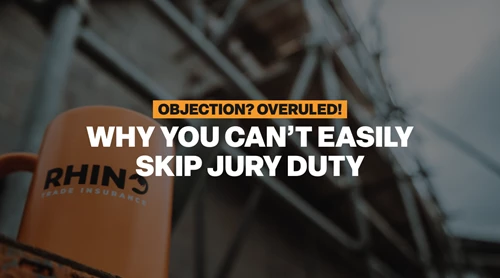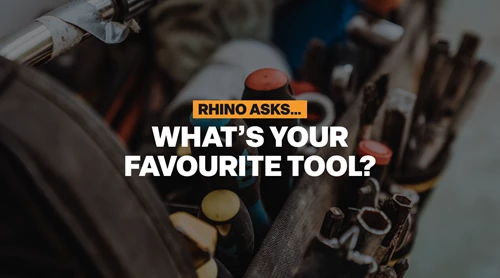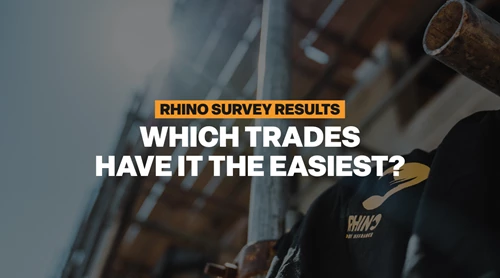As a tradesperson in the UK, once you've built up your business, you'll likely start to come across VAT countless times. But do you really understand what it is, and more importantly, how it affects your trade business? In this blog post, we're going to demystify the world of VAT and provide a comprehensive guide to help you understand its impact on your trade business. Whether you're a seasoned professional or just starting out, this information is crucial for managing your finances and ensuring the success of your trade business.
Understanding VAT
Value Added Tax (VAT) is a consumption tax levied on the value added to goods and services at each stage of production or distribution. It's important to note that VAT is ultimately met by the end consumer, but it's collected and set aside by businesses to the government. The standard rate of VAT in the UK is currently 20%, and there are also reduced rates (5%) and zero rates (0%) for specific goods and services.
VAT Registration
As a tradesperson, the first question you might have is whether you need to register for VAT. VAT registration becomes mandatory when your business's taxable turnover exceeds the current threshold, which is £85,000. However, you can voluntarily register for VAT even if your turnover is below this threshold. There are several benefits to voluntary registration, such as the ability to claim back VAT on your expenses. Nevertheless, this decision should be made carefully, considering your business's financial situation and future prospects.
VAT Rates for Trades Businesses
Understanding which VAT rate applies to your trade business is crucial. In the UK, there are three main rates to consider:
- Standard Rate (20%): Most goods and services fall under the standard rate of VAT. This includes many construction services, like renovations and property repairs. When you charge your customers, you'll need to add 20% to your invoice and allocate this amount to HMRC.
- Reduced Rate (5%): Some services, like the installation of energy-saving materials or renovation of empty residential properties, qualify for the reduced rate. Charging the correct rate is important, as charging too little or too much could result in penalties.
- Zero Rate (0%): Certain goods and services, such as newly built residential properties and some charity construction work, are charged at a zero rate. While this means you don't charge your customers any VAT, you can still claim back VAT on your expenses.
VAT Accounting Methods
Once you're VAT registered, you'll need to choose an accounting method to fit your business. The two primary methods are the cash accounting and the standard accounting methods.
Cash Accounting: With this method, you account for VAT when you receive payment from your customers and when you make payments to your suppliers. It can help with cash flow as you only pay VAT to HMRC when you've received payment from your customers. However, it may not be suitable for all businesses.
Standard Accounting: This method accounts for VAT based on invoice dates, not when payments are made. It provides a more accurate representation of your business's financial transactions but can sometimes affect cash flow negatively.
You, along with your financial experts, accountant or bookkeeper, should choose the method that best suits your business model and financial needs.
VAT Invoicing and Records
Proper record-keeping is essential for your trade business. When invoicing your customers, make sure to include all the required information, such as your VAT number, the rate of VAT, and a clear breakdown of the goods or services provided.
Additionally, maintain accurate records of all your income and expenses, as these will be vital when completing your VAT returns. Using accounting software like Xero or Quickbooks can simplify this process and reduce the risk of errors.
Claiming Back VAT
One of the significant advantages of being VAT registered is the ability to claim back VAT on your business expenses. This includes materials, tools, equipment, and other costs associated with your trade. To claim VAT back, you must keep detailed records and ensure that the expenses are related to your business activities.
VAT Returns and Deadlines
VAT returns are typically due every three months. You need to report the total sales and purchases, along with the amount of VAT you've charged and paid. Submit your VAT return online through the government's online portal. It's crucial to meet the deadlines, as late submissions or payments may result in penalties and interest charges.
Handling VAT Inspections
HMRC sometimes conducts VAT inspections to ensure businesses are complying with VAT regulations. These inspections can be intimidating, but if you maintain accurate records and follow the rules, you have nothing to worry about. Always cooperate with the inspectors and provide them with the information they request to ensure a smooth and easy process.
VAT Penalties and Consequences
Failure to comply with VAT regulations can result in penalties and interest charges. These penalties can range from small fines to significant financial liabilities. It's essential to keep your trade business affairs in order and to stay informed and follow the rules to avoid these consequences.
Why Choose Rhino Trade Insurance For Your Protection?
In conclusion, understanding VAT is essential for the success of your trade business. Whether you're required to register or choose to do so voluntarily, staying on top of your VAT obligations is crucial.
Remember that VAT regulations can change, so it's essential to stay up to date with the latest information and seek professional advice when needed. Proper record-keeping and timely VAT returns are your allies in navigating the world of VAT and ensuring the financial health of your trade business.
Whilst keeping up with your VAT, it's worth taking out a safe and secure trade insurance policy for your business. Fortunately, the expert brokers at Rhino Trade Insurance have done all the hard work for you and distilled the perfect concoction of insurance policies. From public liability insurance, professional indemnity cover, tool protection and more. We can cover your back when times get hard! Take a moment and call our team for a quick and easy quote. Call 0116 243 7904 or visit our website today.




